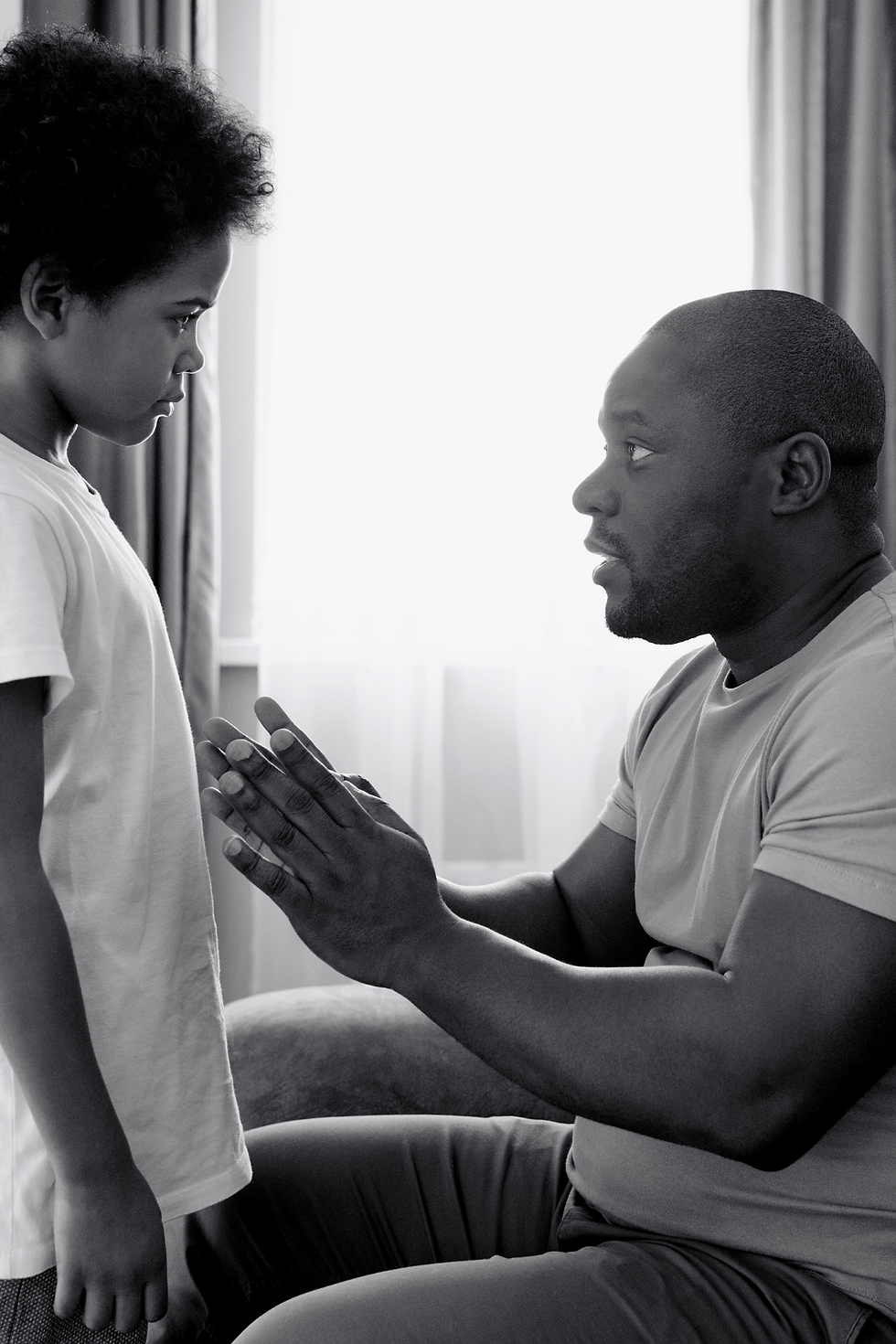Parenting Challenges After a Partner's Infidelity
- Adam Nisenson

- Jul 31, 2025
- 3 min read
By: Adam Nisenson, LMFT, CSAT, Betrayal Trauma Coach

Infidelity shakes the foundations of a relationship, impacting not just the partners involved but often affecting the entire family dynamic. For men who are fathers, the discovery of a partner’s affair introduces unique parenting challenges. Balancing personal emotional turmoil with the responsibilities of fatherhood can be particularly daunting.
This blog aims to guide men through the complexities of parenting in the aftermath of betrayal, offering insights and tools to navigate this difficult journey while maintaining a healthy environment for their children.
Understanding the Impact on Parenting
The emotional impact of infidelity can manifest in various ways, influencing a man’s parenting style and ability. Feelings of anger, betrayal, and sadness may lead to decreased patience, increased irritability, or emotional withdrawal. Additionally, the stress of dealing with relationship issues can divert attention from parental duties, affecting the quality of the parent-child relationship.
Challenges in Maintaining Parental Stability
Emotional Regulation: It can be challenging to manage personal emotions while needing to provide emotional support to children. Kids are sensitive to changes in parental behavior and may feel insecure or frightened by sudden outbursts or a lack of emotional presence.
Consistent Co-Parenting: If both parents are involved, maintaining a united parenting front is crucial. Infidelity can cause significant tension, making cooperative co-parenting difficult.
Explaining the Situation: Depending on the children’s ages, they may have questions or require explanations for visible changes in the family dynamics, such as a parent moving out or increased arguments.
Tools for Navigating Parenting Challenges
Seek Professional Help: Counseling can provide not only a space to process personal emotions but also guidance on handling parenting duties during turmoil. Family therapy might be beneficial to address the changes within the family and help children cope with the situation.
Maintain Routines: Children thrive on predictability. Maintaining routines and structure can provide them with a sense of security during a time of uncertainty. Keep consistent rules, bedtimes, and meal times.
Open Communication: Keep age-appropriate lines of communication open with your children. They need to feel secure in their relationship with both parents. Explain the situation in terms they can understand, reassure them of both parents’ love, and make it clear that the family changes are not their fault.
Practice Self-Care: By taking care of your own emotional and physical needs, you ensure you have the energy and emotional capacity to care for your children. This includes getting enough sleep, eating well, exercising, and finding time for relaxation.
Develop a Support Network: Lean on family and friends for emotional support and practical help. Having a support system can ease the burden during stressful times, ensuring you have time to recharge and attend to your children’s needs.
Understanding Next Steps
As you navigate parenting post-infidelity, consider these next steps:
Evaluate the Co-Parenting Relationship: Determine if adjustments are needed in the co-parenting plan to better support each parent's role and the children’s needs. This might involve setting new boundaries or scheduling regular meetings to discuss parenting issues.
Monitor Children’s Well-being: Pay close attention to how your children are coping. Look for changes in behavior, academic performance, or social interactions that might indicate they are struggling.
Continued Parental Education: Engage in parenting workshops or read literature on effective parenting during personal crises. Educating yourself can provide valuable tools and strategies to handle parenting challenges.

Navigating fatherhood in the aftermath of a partner’s infidelity is no small feat. It requires managing your own emotional healing while simultaneously addressing the needs of your children.
By employing thoughtful strategies such as maintaining routines, seeking professional guidance, and ensuring open communication, you can provide stability and support for your children as you all adjust to new family dynamics. Ultimately, prioritizing effective parenting during this challenging time can help mitigate the impact of infidelity on your children and aid in the healing process for the entire family.
_________________________
All material provided in this blog is for informational purposes only. Direct consultation of a qualified provider should be sought for any specific questions or issues. Use of this material in no way constitutes professional services or advice.




Comments